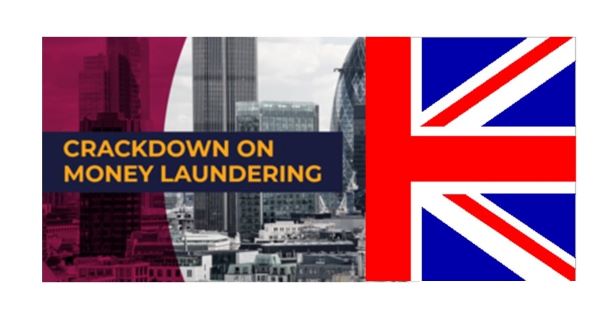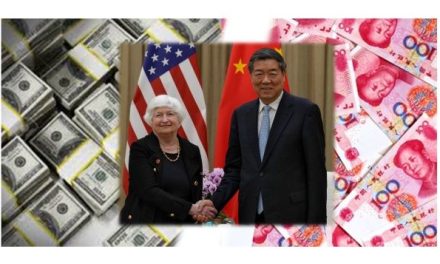Overseas organisations owning UK land must have publicly declared their true owners, under world leading UK laws to crack down on dirty money.
- Oligarchs and non-compliant organisations face severe restrictions on their ability to buy and sell property and could risk future additional penalties
- Further investigatory powers and investment of up to £20 million of allocated spending on economic crime being deployed to tackle money laundering through companies
 Overseas companies owning UK land who have not registered their beneficial owners with Companies House could now face penalties such as sale restrictions and tough fines, the government has announced. Foreign companies were required to declare their beneficial owners on the Register of Overseas Entities by Tuesday 31 January, under world leading new anti-money laundering measures introduced by the government to flush out corrupt elites.
Overseas companies owning UK land who have not registered their beneficial owners with Companies House could now face penalties such as sale restrictions and tough fines, the government has announced. Foreign companies were required to declare their beneficial owners on the Register of Overseas Entities by Tuesday 31 January, under world leading new anti-money laundering measures introduced by the government to flush out corrupt elites.
Now that the deadline has passed, foreign companies that have not submitted information to Companies House could face severe sanctions, including financial penalties or prosecution.
The register was introduced as part of a package of tough economic measures announced in response to Russia’s invasion of Ukraine, targeting the illicit wealth of supporters of the Putin regime. The register also exposes criminals using overseas companies to launder money. Recently scammer Dr Ruja Ignatova, the “Cryptoqueen” on the FBI’s most wanted list, was publicly declared the beneficial owner of two intermediaries in Guernsey due to the new requirements.
Business Minister Lord Callanan said:
 There is nowhere for the criminals and corrupt elites to hide. We will be using all the tools at our disposal, including fines and restrictions, to crack down on foreign companies who have not complied.
There is nowhere for the criminals and corrupt elites to hide. We will be using all the tools at our disposal, including fines and restrictions, to crack down on foreign companies who have not complied.
Unregistered companies are already automatically rejected from registering ownership of any new land by HM Land Registry. Any UK buyers will be unable to transfer their title to the deed of any property purchased from non-compliant organisations, frustrating attempts to sell. Criminals purchase a safe investment like land and property through opaque corporate structures to clean their dirty money. The Register brings transparency to these overseas based structures, and the restrictions halt the flow of money for those who do not comply.
Companies House is now assessing and preparing cases for enforcement action. Further regulations will also empower Companies House to impose financial penalties on land owned by non-compliant organisations, as well as pursue other legal avenues.
It is estimated that 19510 out of a total of 32440 registered overseas organisations have declared their beneficial owners. The information gained has also been invaluable for tax and revenue services, bringing transparency to opaque offshore trusts often used to obscure assets for tax purposes.
Companies House and the Insolvency Service will also gain enhanced powers from the Economic Crime and Corporate Transparency Bill, which has just completed scrutiny in the House of Commons. Through the investment of up to £20 million of allocated spending, both organisations will recruit new teams of intelligence and analytical experts to further boost their capability to tackle money laundering and aid law enforcement.
 Louise Smyth, Chief Executive Officer of Companies House said:
Louise Smyth, Chief Executive Officer of Companies House said:
The implementation of the Register of Overseas Entities has been another huge step forward in the transformation of Companies House and our role in helping combat economic crime.
We cannot be clearer in our message to these entities; if you ignored warnings and fail to register before the deadline, you will face consequences. This includes not only the prospect of restrictions on your land or property but also a possible fine, prison sentence, or both.
Background:
The Register of Overseas Entities came into force on 1 August 2022.
The requirement to register was retrospective; overseas entities who purchased property/land in or after a certain date fell under the scope of this requirement.
Guidelines for registration, and an outline of entities who fall under the scope of these requirements, can be found on GOV.UK at: www.gov.uk/guidance/register-an-overseas-entity.
Companies House and the Insolvency Service will gain enhanced powers from the Economic Crime and Corporate Transparency Bill. The Bill has completed its Commons stages and entered the Lords.
Source: Department for Business, Energy & Industrial Strategy, Companies House , and Lord Callanan
Also Read: Foreign Ownership of London Property should not be Shrouded in Secrecy
BIIA first discovered the topic in research published in 2017 by Thomson Reuters and Transparency International UK, which had put the spotlight on politically exposed persons (PEPs) owning land and property in London, with the focus on companies that are registered overseas. The article was authored by Phil Cotter, who was working at that time at Thomson Reuters. 
Today Phil Cotter is Group Head of Customer & Third-Party Risk Solutions, Data & Analytics at Refinitiv (LSEG) and still very much involved in such issues. Phil Cotter is a former director of BIIA. Congratulations Phil Cotter for being part of the effort in creating the conditions for greater transparency.
In following the timeline of this landmark legislation, it took almost 5 years for authorities to act on the problem and giving Companies House some teeth in enforcing compliance.


























